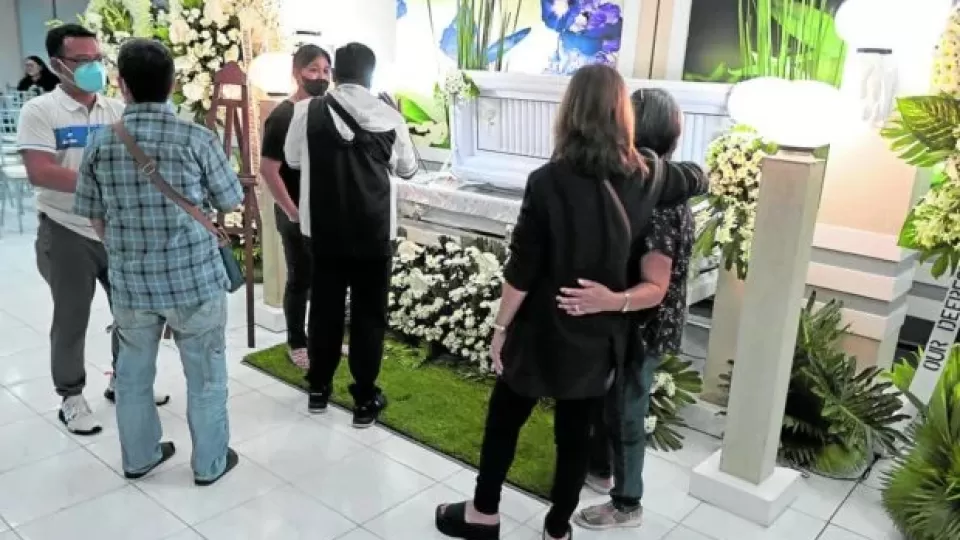October 6, 2022
MANILA — Several governments from Europe and North America took a rare collective stand against media killings in the Philippines by urging law enforcers to deliver swift justice to the assassins of veteran broadcaster Percival Mabasa, the second journalist murdered under the Marcos administration.
On Tuesday, the Canadian and Dutch embassies — co-chairs of the global Media Freedom Coalition — were the first to voice grave concern over the killing of the hard-hitting government critic and vlogger known as Percy Lapid, who was gunned down on Monday night less than a kilometer from his home in Las Piñas City.
“Journalist killings strike at the very core of media freedom and can create a chilling effect that curtails the ability of journalists to report news freely and safely,” they said in a joint statement on Twitter.
German Ambassador to Manila Anke Reiffenstuel, in response to the Canada-Netherlands tweet, conveyed her full agreement.
“Germany remains committed to advocate for freedom of the press and of speech. Those responsible for this crime must be brought to justice,” she said.
The British Embassy in Manila, in another post replying to the Canada-Netherlands tweet, urged Filipino authorities to create a safe environment for all journalists in the Philippines.
The European Union delegation in the Philippines, along with the embassies of Denmark and France, posted similar sentiments of solidarity and sympathy.
“France reaffirms its resolute, unwavering commitment to the freedom of the press, freedom of speech and protection of journalists,” the French Embassy said.
The United States on Wednesday said it welcomed the country’s law enforcement agencies’ investigation of Mabasa’s death.
”Freedom of expression is essential to building the future the people of the Philippines want and deserve,” the US Embassy in Manila said on Twitter, also in answer to the Canada-Netherlands post.
Show of unity
It is rare for foreign embassies to make such a public show of unity on a domestic matter, such as the killing of a Filipino journalist.
But despite their appeal for a quick resolution of the case, the police have not identified any suspect as of Wednesday, more than 24 hours after a self-imposed deadline to track down Mabasa’s assailants.
Still, Philippine National Police chief Gen. Rodolfo Azurin Jr. assured Mabasa’s family that the police would not stop until they identified, arrested and charged not only the gunmen but all persons involved in the murder.
The 63-year-old Mabasa was known for his biting criticism of former President Rodrigo Duterte and President Ferdinand Marcos Jr.
He hosted a radio commentary show “Lapid Fire” on dwBL, but his biggest audience was on social media, including a YouTube account with 218,000 subscribers and a Facebook page with almost 50,000 followers.
He was shot twice in the head inside his car at the gate of BF Resort Village on Aria Street around 8:30 p.m., as he was driving toward his daughter’s residence, only about five minutes from his own house at San Beda Homes in Barangay Talon Dos.
Azurin said investigators were looking at “different persons of interest.”
“But at this time, the investigation on determining the motive of the crime is still ongoing. We want to be very careful in determining the motive for the killing of Percy Lapid,” Azurin said.
Brig. Gen. Jonnel Estomo, acting director of the National Capital Region Police Office, earlier gave Las Piñas police chief Col. Jaime Santos 24 hours to solve the case.
But according to Azurin, the family wants investigators to be prudent in handling the case.
Difficult to drop names
“It is difficult for us to just drop the name of any person without sufficient evidence,” said Azurin, who visited Mabasa’s wake at Manila Memorial Park in Parañaque City on Wednesday morning.
The PNP chief ordered Col. Kirby John Kraft, director of the Southern Police District, to comb through all closed-circuit television (CCTV) footage of the crime scene.
In a phone interview, Kraft said the special investigation task group had only acquired footage from the dash camera of Mabasa’s vehicle but was in the process of obtaining recordings from the village management.
“We are looking to recover [footage from] at least 10 CCTVs along the street where the incident happened,” he said.
Ballistic examination of two empty shells recovered at the scene showed they were fired from a .45-caliber pistol.
Interior Secretary Benhur Abalos, who also attended Mabasa’s wake, offered P500,000 of his own money as bounty for crucial information leading to the arrest of suspects.
Mabasa was the first journalist killed in Metro Manila since tabloid columnist Alex Bacoba was gunned down in Quiapo, Manila, in May 2016.
Media groups fear that his death could portend a brutal treatment of the press under Marcos, similar to the military rule of his late namesake father that was marked by tortures, killings and enforced disappearances of critical journalists.
The Philippines remains one of the deadliest places in the world for the media with 197 journalists killed in the line of duty since 1986, including Mabasa.


